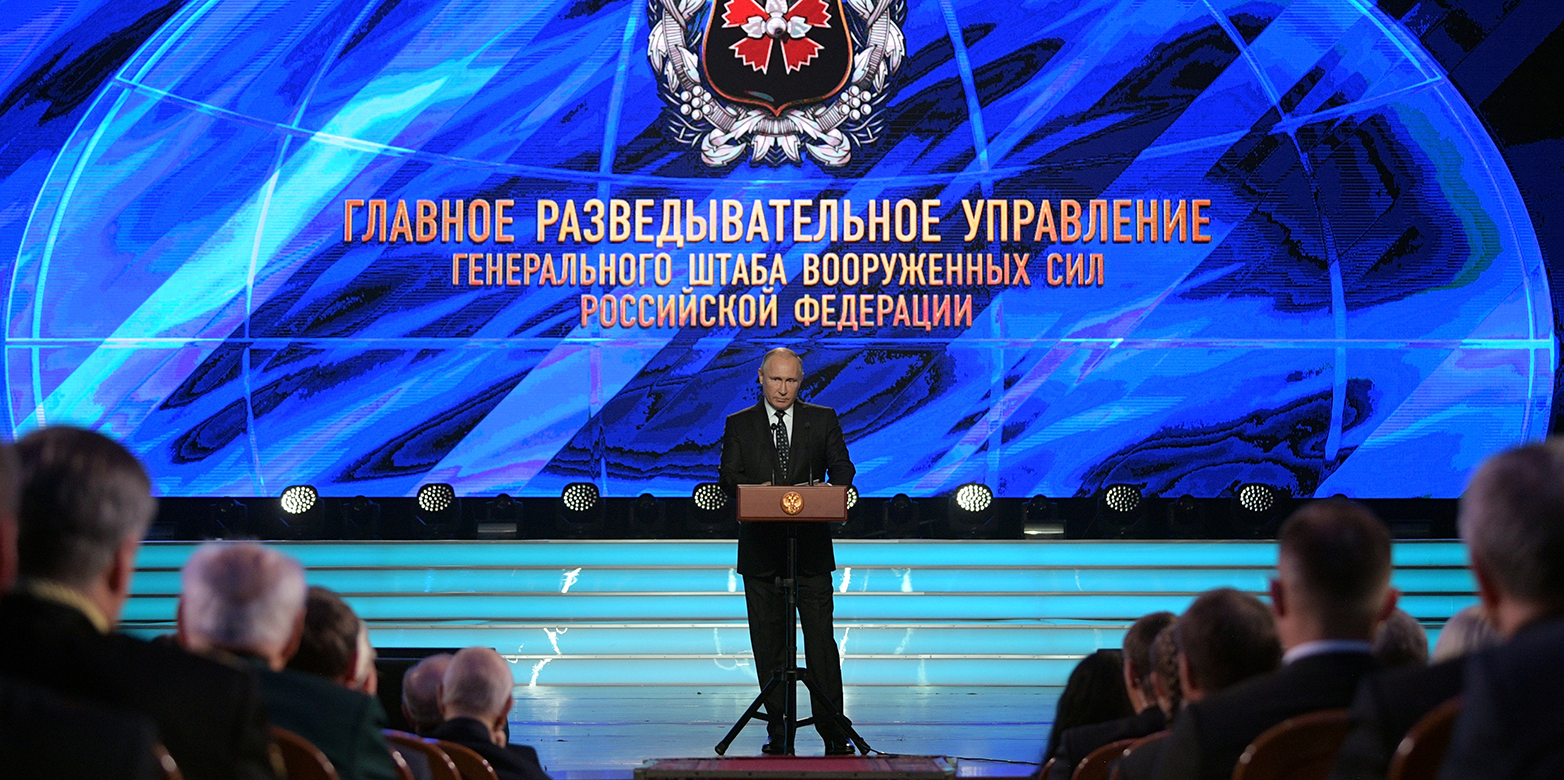Neo-Containment: a Strategy toward Russia
In this CSS Policy Perspective, Henrik Larsen argues that the West should draw inspiration from containment’s intellectual origins and primarily approach Russia as a political-psychological threat.

Russian President Vladimir Putin speaks at an event marking the 100th anniversary of Russia’s military intelligence agency, the GRU, in Moscow on November 2, 2018. Reuters
Key points
- Neo-containment should target Moscow’s capacity to undermine public confidence and limit its space for political influence, which are bigger threats to Western cohesion than during the Cold War.
- Military deterrence is one element of a broader set of tools to discourage Russia from pushing limits that are not necessarily territorial.
- Public commitment to neo-containment would strengthen NATO and EU self-confidence in dealing with Russia.